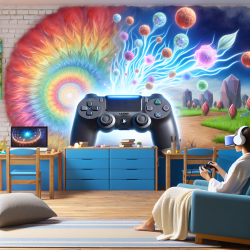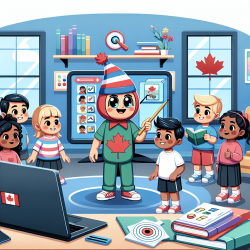DEEP is a virtual reality game that uses biofeedback to help players control their movements through diaphragmatic breathing. As players explore an underwater world, they wear a belt with a stretch sensor around their diaphragm, which measures their breathing. The game teaches players to breathe slowly and deeply, promoting relaxation and reducing physiological symptoms of anxiety.
Key Findings from the Research
The study titled Efficacy of a Virtual Reality Biofeedback Game (DEEP) to Reduce Anxiety and Disruptive Classroom Behavior: Single-Case Study demonstrated the following:
- 6 out of 8 participants showed reductions in anxiety.
- 5 out of 8 participants exhibited reductions in disruptive classroom behaviors.
- The calm or relaxed state induced by DEEP lasted for about 2 hours on average.
How to Implement DEEP in Your Practice
Here are some steps to effectively integrate DEEP into your therapy sessions:
- Introduce DEEP to Your Students: Explain the purpose of the game and how it can help them manage anxiety and improve classroom behavior.
- Set Up the Equipment: Ensure you have the necessary VR headset, DEEP breathing belt, and a compatible computer to run the game.
- Schedule Regular Sessions: Plan DEEP sessions during times when students are likely to experience anxiety or before potentially stressful events like exams.
- Monitor Progress: Keep track of students' anxiety levels and classroom behaviors before and after DEEP sessions to measure its effectiveness.
Encourage Further Research
While the study provides promising results, more research is needed to optimize and personalize DEEP for diverse student populations. Consider collaborating with researchers or conducting your own small-scale studies to explore how DEEP can be tailored to meet the unique needs of your students.
To read the original research paper, please follow this link: Efficacy of a Virtual Reality Biofeedback Game (DEEP) to Reduce Anxiety and Disruptive Classroom Behavior: Single-Case Study.










